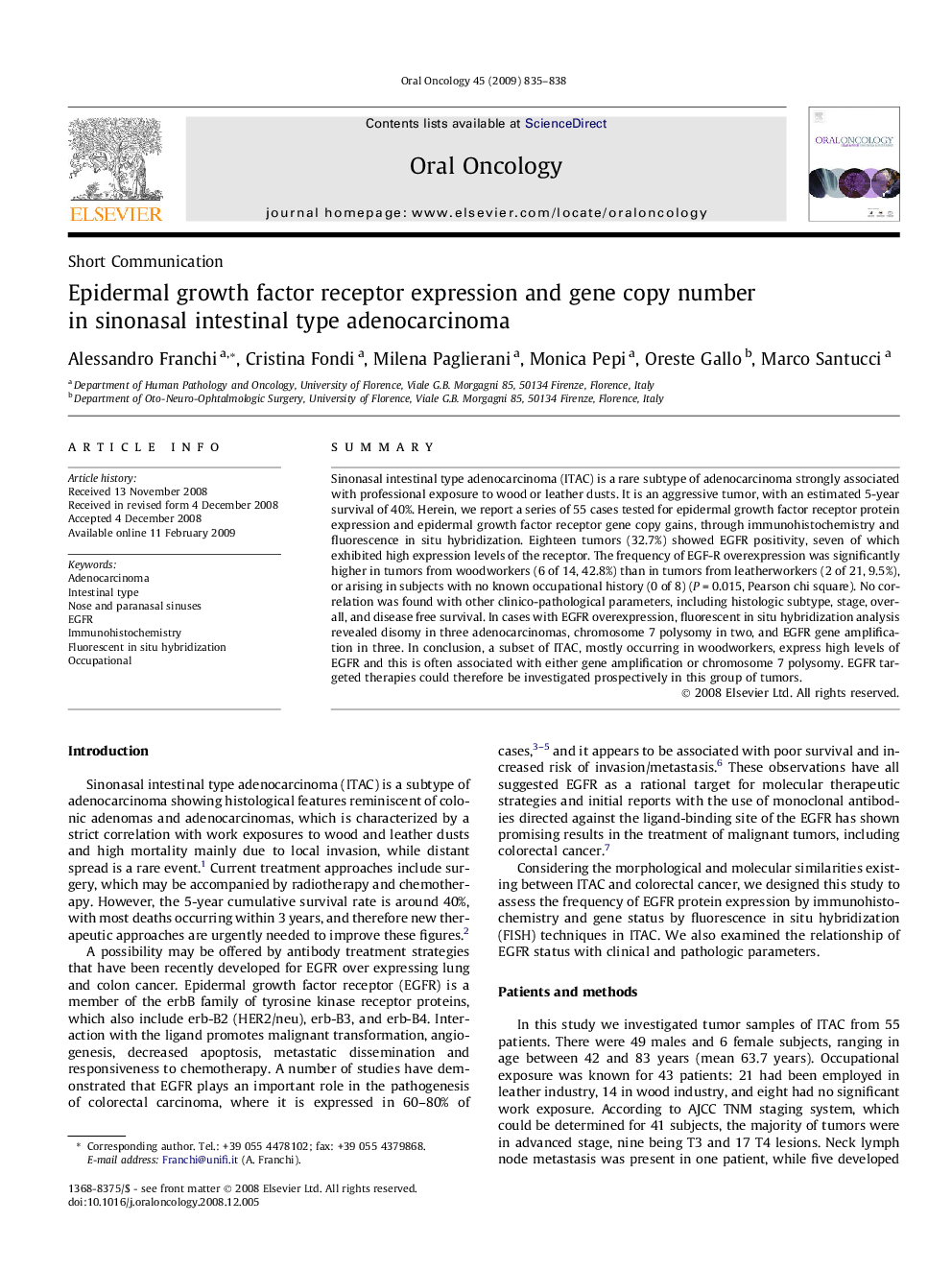| Article ID | Journal | Published Year | Pages | File Type |
|---|---|---|---|---|
| 3165024 | Oral Oncology | 2009 | 4 Pages |
SummarySinonasal intestinal type adenocarcinoma (ITAC) is a rare subtype of adenocarcinoma strongly associated with professional exposure to wood or leather dusts. It is an aggressive tumor, with an estimated 5-year survival of 40%. Herein, we report a series of 55 cases tested for epidermal growth factor receptor protein expression and epidermal growth factor receptor gene copy gains, through immunohistochemistry and fluorescence in situ hybridization. Eighteen tumors (32.7%) showed EGFR positivity, seven of which exhibited high expression levels of the receptor. The frequency of EGF-R overexpression was significantly higher in tumors from woodworkers (6 of 14, 42.8%) than in tumors from leatherworkers (2 of 21, 9.5%), or arising in subjects with no known occupational history (0 of 8) (P = 0.015, Pearson chi square). No correlation was found with other clinico-pathological parameters, including histologic subtype, stage, overall, and disease free survival. In cases with EGFR overexpression, fluorescent in situ hybridization analysis revealed disomy in three adenocarcinomas, chromosome 7 polysomy in two, and EGFR gene amplification in three. In conclusion, a subset of ITAC, mostly occurring in woodworkers, express high levels of EGFR and this is often associated with either gene amplification or chromosome 7 polysomy. EGFR targeted therapies could therefore be investigated prospectively in this group of tumors.
